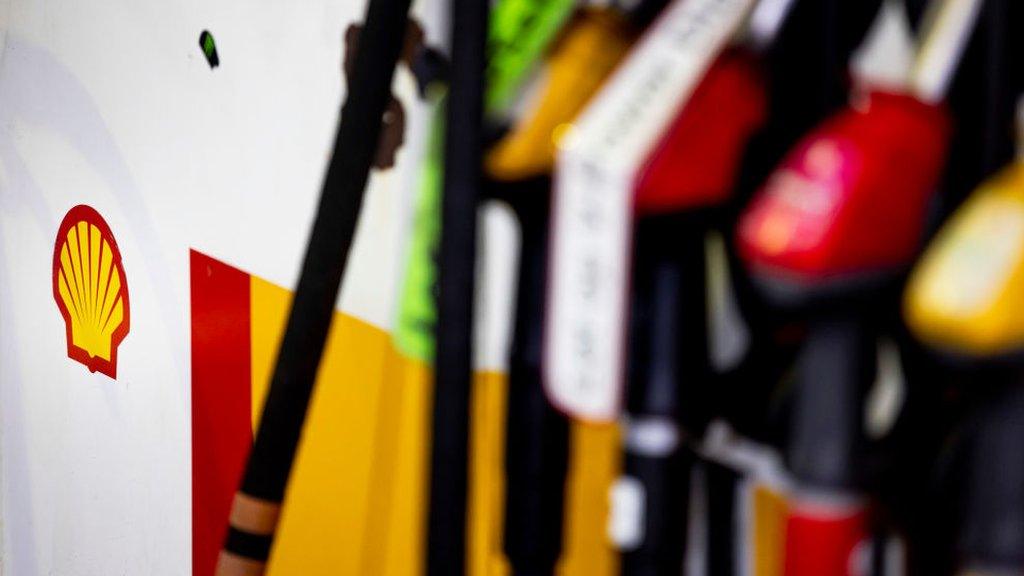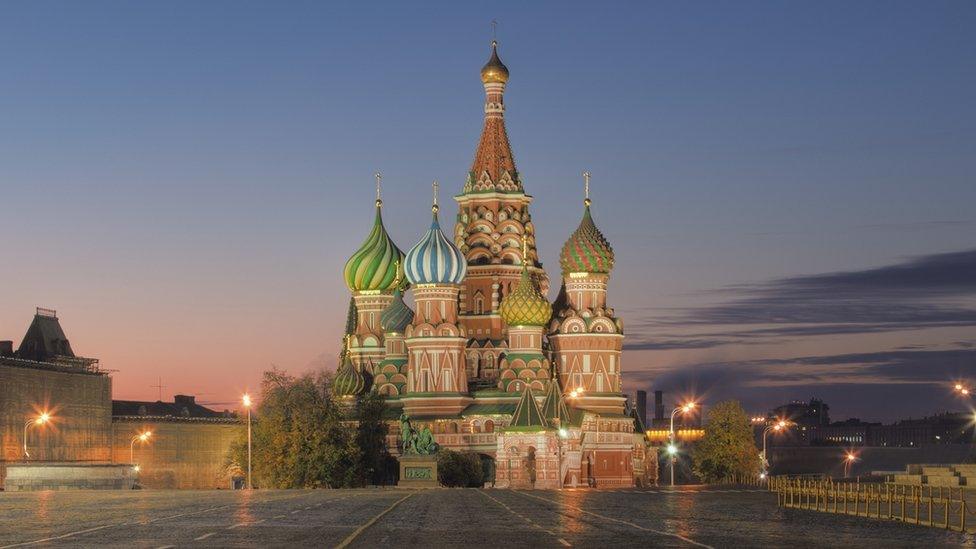Shell defends 'difficult' decision to buy Russian crude oil
- Published

Shell has defended its decision to purchase Russian crude oil despite the invasion and bombardment of Ukraine.
The oil giant said in a statement that the decision to purchase the fuel at a discounted price was "difficult".
It confirmed that it had bought a cargo of Russian crude oil on Friday but it had "no alternative".
Ukrainian Foreign Minister Dmytro Kuleba hit out at the energy company, asking on Twitter: "Doesn't Russian oil smell Ukrainian blood for you?"
So far Canada has announced a ban on Russian oil imports but other Western countries have not imposed sanctions on Russian oil imports, fearing it will drive up already record high energy prices around the world.
But on Sunday, US Secretary of State Antony Blinken said the US was now in "active discussions" with European partners about banning them while also maintaining a "steady global supply".
Russia is the world's second top producer of crude oil after Saudi Arabia, and supplies about a third of Europe's needs.
Allow X content?
This article contains content provided by X. We ask for your permission before anything is loaded, as they may be using cookies and other technologies. You may want to read X’s cookie policy, external and privacy policy, external before accepting. To view this content choose ‘accept and continue’.
Commenting on its move, Shell said it was forced to buy oil from Russia in order to maintain timely supplies of fuel to Europe.
The firm said it remains "appalled by the war in Ukraine" and has stopped most activities involving Russian oil, but it added the situation with supplies is "highly complex".
Russian oil currently makes up about 8% of Shell's working supplies. One of the firm's refineries, which produces diesel and petrol and other products, is also among the biggest in Europe.
"To be clear, without an uninterrupted supply of crude oil to refineries, the energy industry cannot assure continued provision of essential products to people across Europe over the weeks ahead," a spokesperson said.
"Cargoes from alternative sources would not have arrived in time to avoid disruptions to market supply.
"We didn't take this decision lightly and we understand the strength of feeling around it."
The firm also said that it will try to choose alternatives to Russian oil "wherever possible", and that profits from Russian oil will go to a dedicated fund aimed at helping people in Ukraine.
It comes shortly after the company announced that it would end all of its joint ventures with the Russian energy company Gazprom following the invasion.
That will involve the company selling its 27.5% stake in a major liquefied natural gas plant and a 50% stake in two oilfield projects in Siberia.
It will also end its involvement in the Nord Stream 2 pipeline between Russia and Germany. The 1,200km pipeline under the Baltic Sea had already been put on hold by German ministers.
In a statement issued on Monday, Shell said that it expected the move, which will also apply to any "related entities" to Gazprom, would be worth about $3bn (£2.2bn). The associated costs will be marked on its balance sheet later this year.
Shell followed on from the likes of BP, which had already announced that it would offload its stake in the Russian state-owned oil giant Rosneft - a potential hit of $25bn.
BP said earlier this week it was too soon to say how or to whom its stake in Rosneft would be sold.
Norwegian oil and gas producer Equinor has also announced its exit from Russia, saying the conflict made its current position "untenable".
Correction 22nd April 2022: This article originally reported that Western countries have not imposed sanctions on Russian oil imports and has been amended to make clear that Canada had announced a ban.

War in Ukraine: More coverage
IN KYIV: Locals fear another Grozny or Aleppo
ANALYSIS: Europe finally steps up
EXPLAINED: Why Putin has invaded Ukraine?
IN DEPTH: Full coverage of the conflict
Related topics
- Published28 February 2022

- Published23 February 2024
